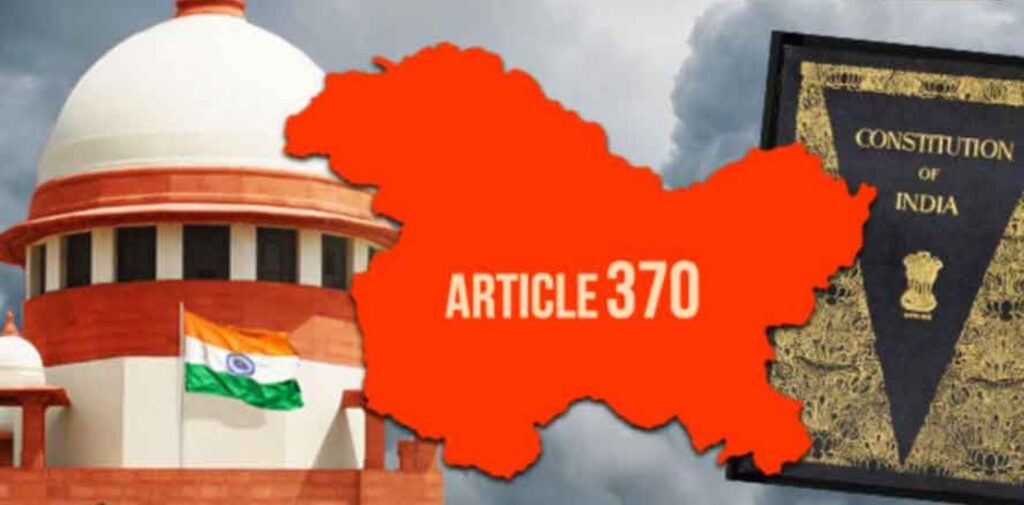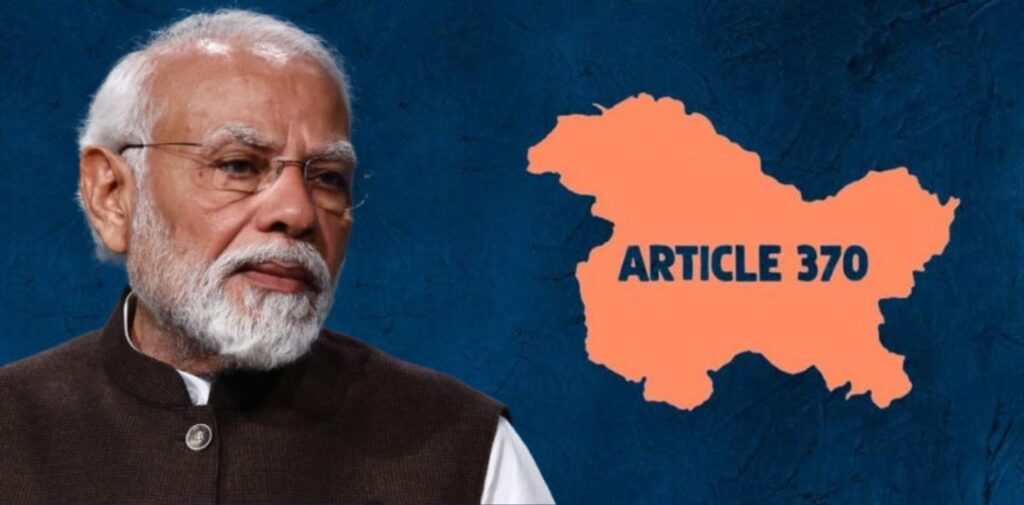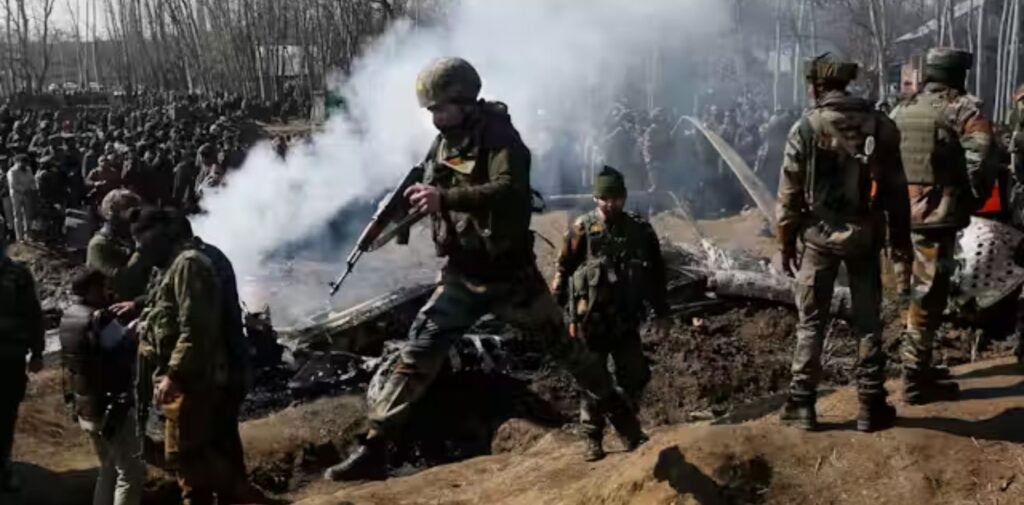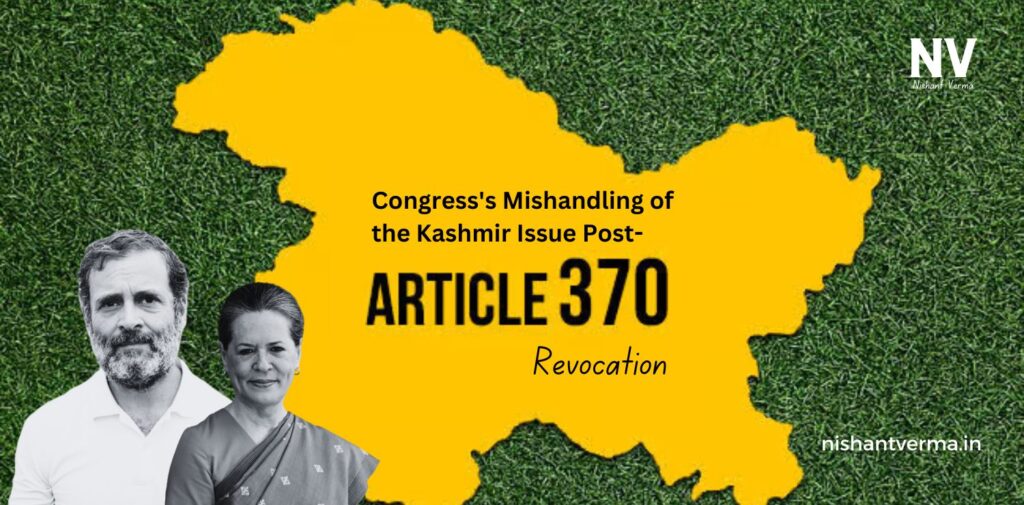The Kashmir issue has been one of the most significant and complex geopolitical matters in India’s history. For decades, the region has seen conflicts, political turmoil, and military confrontations, both within India and between India and Pakistan. The issue is deeply intertwined with national identity, territorial integrity, and the promises made to the people of Jammu and Kashmir. However, the political handling of Kashmir, particularly by India’s Congress party over the years, has been a subject of much criticism.
On August 5, 2019, the government led by the Bharatiya Janata Party (BJP), under Prime Minister Narendra Modi, made a historic move by revoking Article 370 of the Indian Constitution, which granted special autonomous status to Jammu and Kashmir. The decision was controversial, not only within India but also in the international arena. It was seen by many as an attempt to reassert India’s control over the region and integrate Jammu and Kashmir more fully into the Indian Union. However, in the aftermath of this decision, the Congress party’s response and approach to the Kashmir issue have been heavily criticized, especially when viewed from the lens of its past policies and political legacy.
Historical Context and Article 370
Before delving into Congress’s response, it is essential to understand the historical context. Jammu and Kashmir acceded to India in 1947, after the partition of British India. The then Maharaja of Kashmir, Hari Singh, agreed to join India under the condition that the region would maintain a special status, granted under Article 370 of the Indian Constitution. This provision allowed Jammu and Kashmir to have its own constitution, a separate flag, and considerable autonomy in most matters, with the exception of defense, foreign affairs, finance, and communications.
For years, Article 370 was seen as a safeguard for the rights of the people of Kashmir and a reflection of the unique circumstances under which the region acceded to India. Over time, however, the issue became a source of political and social friction, with both the Indian government and local political parties accusing each other of exploiting the special status for narrow political gains.

Congress and Kashmir: A Long History of Ambivalence
The Congress party has played a central role in India’s post-independence politics, and its relationship with Kashmir has been equally complex. On one hand, the party has historically supported the accession of Jammu and Kashmir to India. On the other hand, it has also attempted to balance the aspirations of the people of Kashmir with the need to maintain national unity and integrity.
In the early years after independence, Congress maintained that the region’s special status was essential for Kashmir’s integration into India. Under Prime Minister Jawaharlal Nehru, Congress took steps to ensure that Jammu and Kashmir remained a part of India despite strong opposition from Pakistan and certain sections within Kashmir.
However, over the years, the Congress’s approach toward Kashmir became increasingly inconsistent. During the 1960s and 1970s, successive Congress governments, while claiming to support Kashmir’s integration into India, struggled to address the growing discontent and alienation in the region. This culminated in the insurgency of the late 1980s, which was fueled by a combination of local grievances, political neglect, and external factors like Pakistan’s support for militancy.
Despite these challenges, Congress’s traditional stance of supporting Kashmir’s special status remained. However, the party’s inability to effectively address the region’s internal issues and its tendency to view Kashmir purely through the lens of national security led to a gradual erosion of its credibility among the people of the state.
The BJP and the Revocation of Article 370
The revocation of Article 370 by the Modi government was a bold and decisive move. The BJP, backed by its ideological partner Rashtriya Swayamsevak Sangh (RSS), has long advocated for a unified India, one where Kashmir was not granted any special status. The BJP’s approach to Kashmir is deeply rooted in its belief in the idea of “One Nation, One Constitution.”
For the BJP, the abrogation of Article 370 was seen as a major step towards fulfilling its vision of a fully integrated India. In the aftermath of the decision, the government took several steps, including the bifurcation of the state into two Union Territories (Jammu & Kashmir, and Ladakh), the imposition of curfews, communication blockages, and the arrest of key political leaders from the region. While the government argued that these measures were necessary for maintaining law and order, they also sparked international condemnation and concerns over human rights violations.

Congress’s Response to the Revocation
The Congress party’s response to the revocation of Article 370 can be characterized as largely reactionary, disorganized, and out of touch with the ground realities in Kashmir.
- Initial Shock and Confusion: The Congress was caught off guard by the suddenness and decisiveness of the move. For much of the early years of the Modi government, the Congress had criticized the BJP’s policies on Kashmir, but the revocation left the party struggling to articulate a coherent position. Some Congress leaders condemned the move outright, calling it unconstitutional, while others remained silent, trying to avoid alienating their supporters in Jammu and Kashmir.
- Failure to Acknowledge Ground Realities: One of the key failures of Congress in handling the Kashmir issue after the abrogation of Article 370 was its refusal to recognize the changing dynamics in the region. The BJP’s move was not just a constitutional decision; it was the culmination of years of dissatisfaction with the existing political structure in Jammu and Kashmir. The Congress, however, failed to engage with these changing sentiments, instead focusing on a narrative of constitutional propriety and the supposed erosion of Kashmir’s special status.
- Inconsistent Leadership: Another issue with Congress’s response was its lack of unified leadership. While some senior leaders like Rahul Gandhi spoke against the revocation, others remained non-committal. The absence of a clear and unified stance left the party vulnerable to criticism for lacking both vision and strategy. This indecision and lack of clarity were particularly damaging in a situation where the political discourse around Kashmir was shifting rapidly.
- Undermining the Local Leaders: The Congress party’s approach also seemed to disregard the voices of the local political leadership in Jammu and Kashmir. Although Congress had been part of the political landscape in Kashmir for many years, it failed to stand in solidarity with leaders who were arrested or placed under house arrest after the revocation. Congress’s failure to articulate a clear position on the human rights violations reported in the region further eroded its credibility.
- Loss of Credibility in Kashmir: The Congress party’s inability to align itself with the realities on the ground led to a further erosion of its political relevance in Jammu and Kashmir. Over the years, the party had already lost much of its appeal in the state, particularly after the decline of the Jammu and Kashmir National Conference (NC) and the Peoples Democratic Party (PDP) as dominant forces. However, Congress’s failure to effectively challenge the BJP’s policies in the region meant that it lost any remaining political foothold in Kashmir.

Conclusion: The Kashmir Issue
Congress’s mishandling of the Kashmir issue post-Article 370 revocation can be attributed to its failure to adapt to the changing political landscape in Jammu and Kashmir. While the BJP’s policies in the region may be highly controversial, Congress’s inability to engage with the issue in a meaningful way only exacerbated the situation. To regain relevance, Congress must move beyond outdated rhetoric, recognize the ground realities, and develop a strategy that acknowledges the aspirations and grievances of the people of Jammu and Kashmir.
The Kashmir issue is far from resolved, and it will continue to be a defining challenge for Indian politics. The Congress party must reflect on its past mistakes and adopt a more pragmatic approach if it hopes to be a constructive force in shaping the future of Jammu and Kashmir.




